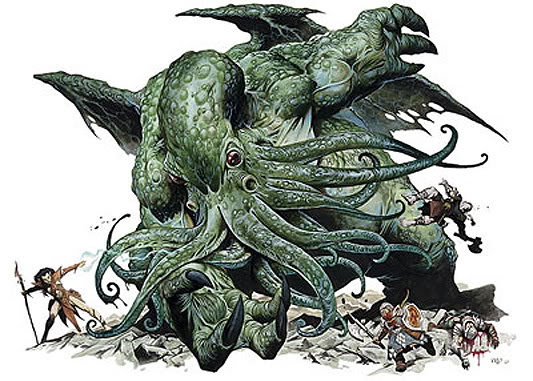As some regular readers might recall, last year I got a roleplaying group together with the ambitious goal of playing twelve different games over the course of twelve months. I’d gotten the idea from a podcast I used to listen to called Dice of Doom, but the real driving force was the fact that I have so many games I’ve never played. I post daily to an Instagram hashtag (#bensshelf) that features a different rpg book that’s been collecting dust on my shelf for years (along with my usually dour face) and I’m into the 40s at this point with a ton of my collection left to go. Getting the group together wasn’t the hard part, though. As different as the idea was, I found enough people who were into it to give the concept a try. We actually did pretty well for a few months, getting through three games featuring multiple sessions with the odd one shot or two along the way.
About four months in, however, life intervened. Due to unforeseen financial circumstances, I ended up having to take a second job and that pretty much killed my schedule flexibility. To be honest, I could have kept it alive, but I had to choose between my gaming group and my writing group. In retrospect, I’m not sure I made the right choice, but at the time, it seemed like a no brainer to focus on the writing group. The worst part was I had big ambitions for the gaming group, even going so far as to develop a podcast to accompany it. While the production values weren’t the best, I thought the podcast was pretty good for what it was trying to accomplish and I really enjoyed producing the series.
The moral of this story is that it’s really hard for a group of adults to keep a gaming group together. There’s just so much happening in everyone’s lives that unless a few people are committed enough to keep everybody else on board, the whole thing will fly apart. In some respects, it’s like trying to get a band together. The concept always sounds great in your head, but it’s a massive logistical pain in the ass once you try to make it happen. Most of the time, the burden of organizing a group falls upon the gamemaster’s shoulders, which sucks because this is also the person who has to do the most work during the game. I suppose it would be easy enough to offload that responsibility onto someone else, but it never quite works out this way. If I were planning to organize another gaming group in the future, I think one of the first things I’d try to do differently is delegate some responsibilities. Who’s making the head count to be sure who’s coming and who’s not? Who’s making sure food and drinks are available? Who’s keeping track of what happened in each game? This is all minor stuff, but little logistical things tend to add up and make life more difficult than it needs to be.
Managing a gaming group is real challenge that most gamers completely overlook. Poor communication is usually the biggest culprit for groups falling apart. Sometimes it’s just the uncertainty that causes everyone to drift apart over time, but in other cases it can lead to genuinely bad feelings. For most people, a gaming group is, at best, the fourth or fifth most important thing on their agenda. It’s a luxury hobby that can soak up a lot of time without much obvious benefit beyond simply enjoying yourself. Is it any worse than playing 18 holes of golf on a Sunday morning? Probably not, but there aren’t many gaming groups getting their session out of the way before noon on a weekend either. For most of us, the prime time for gaming interferes with social obligations for younger people and family obligations for older people. I’ve always thought that a weeknight is an ideal time for a gaming group to meet for three to four hours, but I’ve never found anyone who agrees with me on that count.
If there’s some advice I can impart here (both for myself and others), it’s to be realistic about what everyone wants out of your group and how you’re going to manage it. Don’t be afraid to be honest about setting expectations and assigning responsibilities. For gamemasters, you have to be willing to let go of some control if you don’t want to wind up managing absolutely everything about the group. Just because you’re in charge of the game once play begins doesn’t mean you also have to coordinate when and where to meet or sort out the menu. In addition to communication and flexibility, you also have to be honest with each other. If you don’t see yourself being able to stick it out for more than a few weeks, say that up front rather than slowly fading from the scene. I’ve certainly been guilty of doing this, mostly because I want to be involved even though I have very real conflicts in my schedule that prevent me from fitting in a gaming group.
Anyway, now that my work and financial situations are stabilizing a bit, I’m beginning to have thoughts about organizing another group. The 12/12 Project fizzled out around this time last year, so maybe nobody will notice if it picks back up after a year-long hiatus…

No responses yet